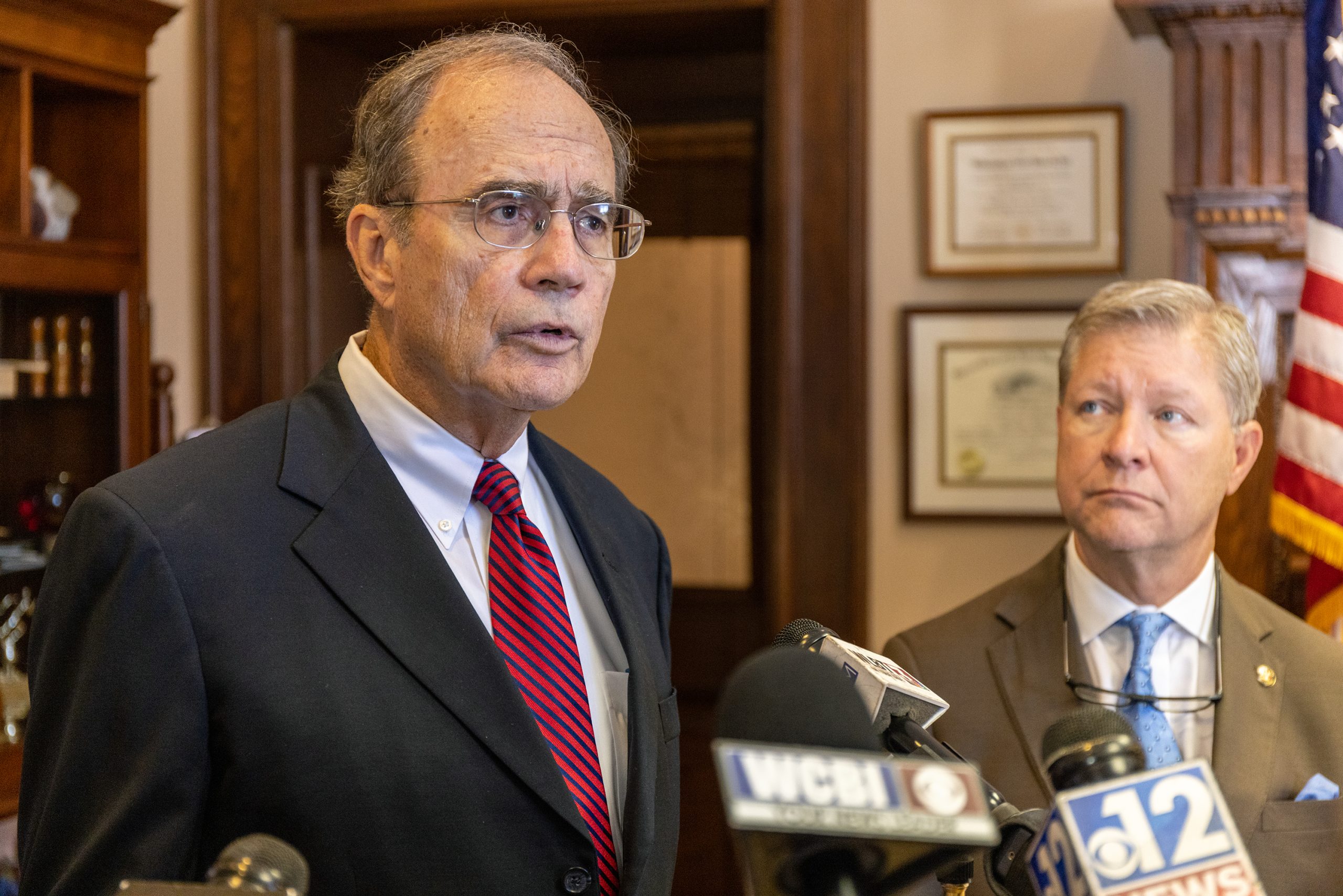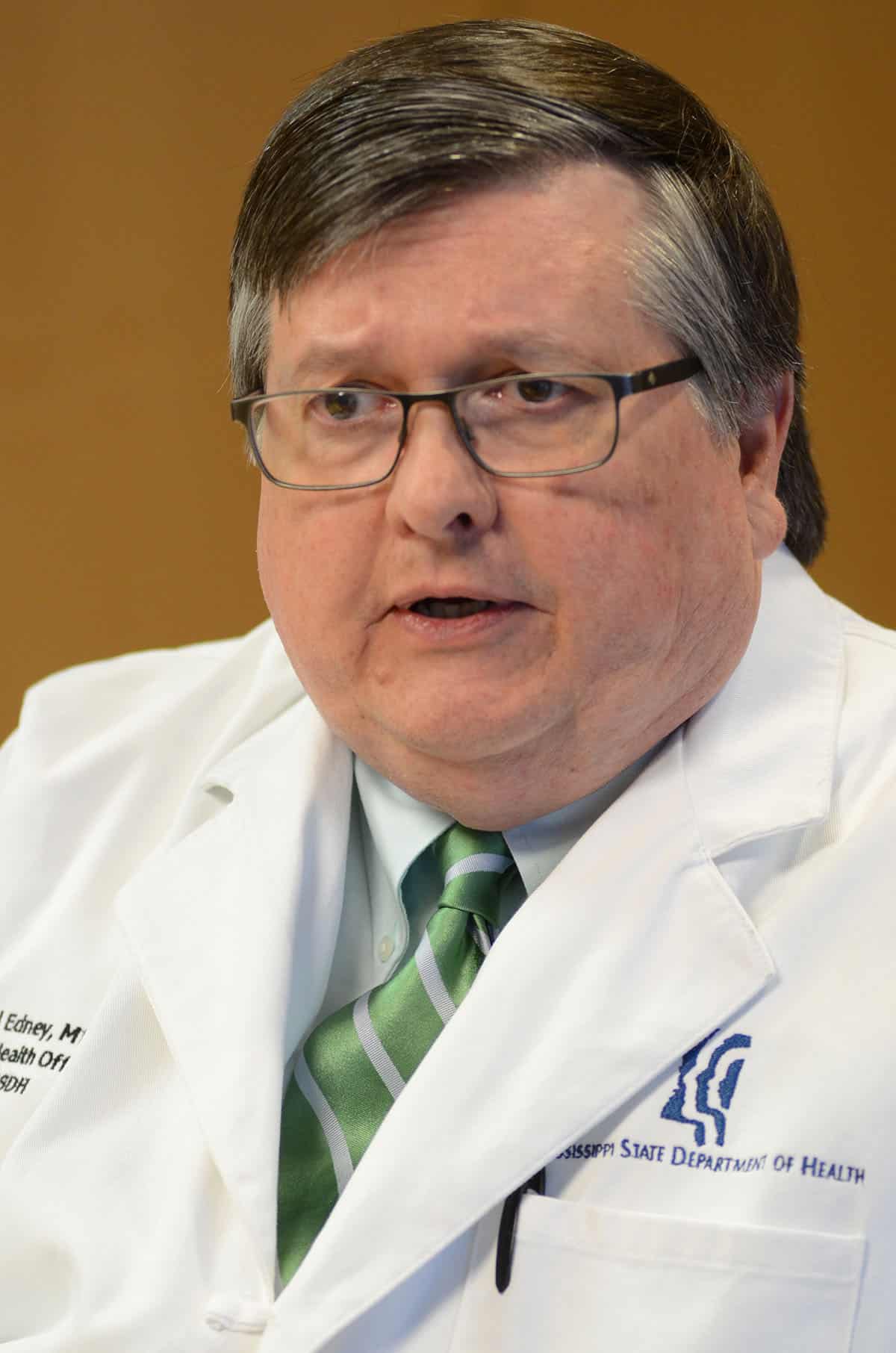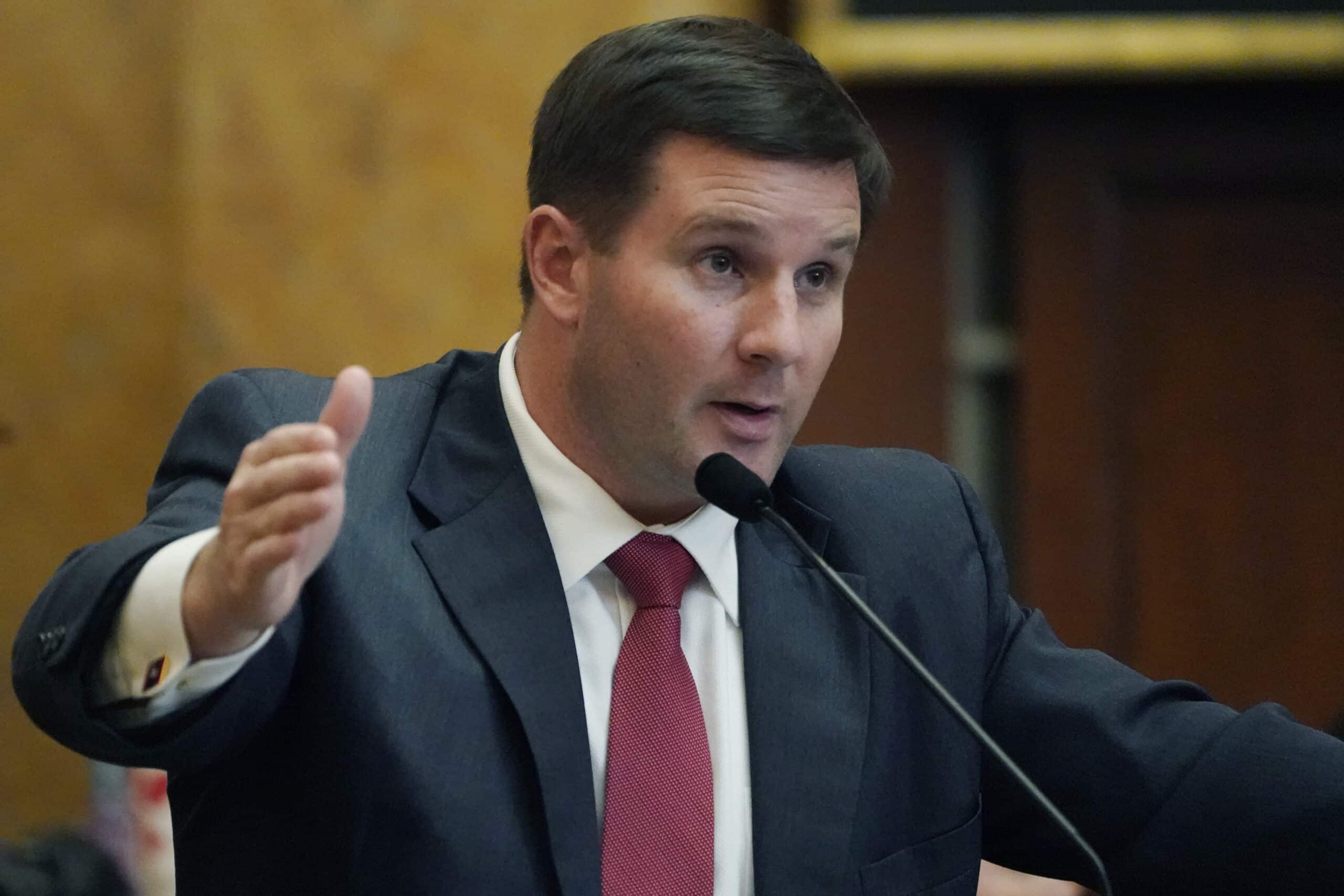Mississippi Today
The state’s troubled hospital grant program has finally awarded money to eight facilities. Many more are waiting.

Eight of 80 Mississippi hospitals that applied for money through the state’s new hospital grant program have finally received those funds after months of waiting.
However, Mississippi State Health Department officials say the program’s kinks are still being ironed out.
The Legislature signed the Mississippi Hospital Sustainability Grant program, which allotted state hospitals a cumulative one-time payment of $103 million, into law in April. The legislation was part of a package of bills introduced by Lt. Gov. Delbert Hosemann intended to help stem the state’s ongoing health care crisis.
Nearly half of the state’s rural hospitals are at risk of closure, according to one report, and urban hospitals have been cutting services and struggling with recouping losses sustained during the COVID-19 pandemic.
But the grant program has been riddled with trouble since its creation.
For months, a legislative error prevented the money from being disbursed to struggling hospitals. During the bill’s creation, lawmakers chose to use federal pandemic relief money instead of state funds — it’s not clear if they knew the challenges that the source of funds could present. Federal money is highly regulated, which has complicated how the grant money can be disbursed.
While the program was originally pitched as one-time grants, in actuality, hospitals must show financial loss due to the pandemic. One hospital administrator previously told Mississippi Today that made it more of a “reimbursement” program.

State Health Officer Dr. Daniel Edney has given changing, and sometimes conflicting, statements about the grant program in public meetings and interviews, which agency officials have chalked up to the “fluid” nature of the situation. Edney declined to make himself available for this story, despite multiple interview requests over the course of five weeks.
He told legislators at a tense Joint Legislative Budget Committee meeting in late September that two-thirds of hospitals had applied for the program, but only half of those hospitals were actually eligible for the money. Lawmakers — Hosemann and Rep. Trey Lamar, R-Senatobia, in particular — appeared frustrated at the health agency’s handling of the program.
The state health department is being paid $700,000 to dole out the funds.
Lamar at the meeting asked for a comprehensive list detailing hospitals’ eligibility for the grant money. Edney first said he had that list back at the office, but minutes later said he would get agency officials to draft a document explaining the program and send that information to committee members.
Lamar nor Hosemann ever received that list or document, they said. A records request by Mississippi Today did not yield them, either.
A few days after that meeting, Edney said in an interview with radio personality Paul Gallo that through a new workaround, he expected that 85% of hospitals would actually be eligible for the money. When Mississippi Today followed up with Edney to explain the sudden change, he offered no specifics.
“We’re all still working (on) the problem,” he said.
Edney was adamant at the September Joint Legislative Budget Committee meeting that the agency needed legislative direction before they could disburse funds, and that he needed lawmakers to decide if they wanted to send out the money or wait until they fixed the program during the upcoming legislative session.
Even though legislators say they haven’t received any new information, eight hospitals quietly received some money in the past few weeks.
As of Nov. 13, the only hospitals that have received money are Bolivar Medical Center, Greenwood Leflore Hospital, Baptist Memorial Hospital of Booneville, Diamond Grove Center and several Merit Health locations — River Oaks, Woman’s Hospital, Central and Biloxi.
Each of those facilities got $1 million, except for Merit Health Woman’s Hospital and Diamond Grove, which received $500,000 each.
Those amounts are generally less than what was initially allotted to those facilities at the time of the program’s passage, except for Greenwood, which received slightly more, and Diamond Grove, which was originally expected to receive nothing.
The Greenwood hospital has been facing steep financial difficulties for months. Interim CEO Gary Marchand said the money would be enough to cover hospital payroll for two weeks.
“Every little bit will help us continue to operate in our current situation,” he said. “Although this funding is just one piece of our short-term sustainability, we are appreciative of Dr. Edney, the Mississippi State Health Department and the Legislature.”
The news that money had been disbursed came as a surprise to Lamar when reached by phone on Tuesday.

“Hopefully, this means we’re making some progress,” Lamar said. “That was certainly the intent — to get financial assistance to as many hospitals that will qualify as quickly as possible. It’s taken this long, but at the end of the day, if it gets where it’s supposed to go, that’s what we want to see happen.”
An official document provided by the agency showed that an additional 72 hospitals have applied for the money as of Nov. 14, which is about 70% of the state’s total hospitals. One of those facilities is Lamar’s local hospital, Highland Hills Medical Center in Senatobia.
He said the facility got a “notice of approval” from the health department this week regarding the grant money but still needed to provide more information before being determined eligible.
Now, instead of trying to estimate how many hospitals are generally eligible, health department officials would only say all hospitals can apply for the money — they just have to prove COVID losses.
However, the entire $103 million will likely not be given out — that amount serves as a cap for the maximum amount of money that can be distributed.
Hospitals can apply for the money until the end of the year, and if hospitals don’t get enough help, Hosemann said he’s committed to making changes to the program.
“We have asked the Department of Health to provide us with information by early December detailing how much grant money has been distributed to date and how much is expected to be distributed by the beginning of session,” he said. “Once we have that information, we will start working on revisions to the program to ensure hospitals receive what we initially intended them to receive.”
This article first appeared on Mississippi Today and is republished here under a Creative Commons license.
Mississippi Today
On this day in 1903, W.E.B. Du Bois urged active resistance to racist policies
April 27, 1903

W.E.B. Du Bois, in his book, “The Souls of Black Folk,” called for active resistance to racist policies: “We have no right to sit silently by while the inevitable seeds are sown for a harvest of disaster to our children, black and white.”
He described the tension between being Black and being an American: “One ever feels his twoness, — an American, a Negro; two souls, two thoughts, two unreconciled strivings; two warring ideals in one dark body, whose strength alone keeps it from being torn asunder.”
He criticized Washington’s “Atlanta Compromise” speech. Six years later, Du Bois helped found the NAACP and became the editor of its monthly magazine, The Crisis. He waged protests against the racist silent film “The Birth of a Nation” and against lynchings of Black Americans, detailing the 2,732 lynchings between 1884 and 1914.
In 1921, he decried Harvard University’s decisions to ban Black students from the dormitories as an attempt to renew “the Anglo-Saxon cult, the worship of the Nordic totem, the disenfranchisement of Negro, Jew, Irishman, Italian, Hungarian, Asiatic and South Sea Islander — the world rule of Nordic white through brute force.”
In 1929, he debated Lothrop Stoddard, a proponent of scientific racism, who also happened to belong to the Ku Klux Klan. The Chicago Defender’s front page headline read, “5,000 Cheer W.E.B. DuBois, Laugh at Lothrup Stoddard.”
In 1949, the FBI began to investigate Du Bois as a “suspected Communist,” and he was indicted on trumped-up charges that he had acted as an agent of a foreign state and had failed to register. The government dropped the case after Albert Einstein volunteered to testify as a character witness.
Despite the lack of conviction, the government confiscated his passport for eight years. In 1960, he recovered his passport and traveled to the newly created Republic of Ghana. Three years later, the U.S. government refused to renew his passport, so Du Bois became a citizen of Ghana. He died on Aug. 27, 1963, the eve of the March on Washington.
This article first appeared on Mississippi Today and is republished here under a Creative Commons Attribution-NoDerivatives 4.0 International License.![]()
Mississippi Today
Jim Hood’s opinion provides a roadmap if lawmakers do the unthinkable and can’t pass a budget
On June 30, 2009, Sam Cameron, the then-executive director of the Mississippi Hospital Association, held a news conference in the Capitol rotunda to publicly take his whipping and accept his defeat.
Cameron urged House Democrats, who had sided with the Hospital Association, to accept the demands of Republican Gov. Haley Barbour to place an additional $90 million tax on the state’s hospitals to help fund Medicaid and prevent the very real possibility of the program and indeed much of state government being shut down when the new budget year began in a few hours. The impasse over Medicaid and the hospital tax had stopped all budget negotiations.
Barbour watched from a floor above as Cameron publicly admitted defeat. Cameron’s decision to swallow his pride was based on a simple equation. He told news reporters, scores of lobbyists and health care advocates who had set up camp in the Capitol as midnight on July 1 approached that, while he believed the tax would hurt Mississippi hospitals, not having a Medicaid budget would be much more harmful.
Just as in 2009, the Legislature ended the 2025 regular session earlier this month without a budget agreement and will have to come back in special session to adopt a budget before the new fiscal year begins on July 1. It is unlikely that the current budget rift between the House and Senate will be as dramatic as the 2009 standoff when it appeared only hours before the July 1 deadline that there would be no budget. But who knows what will result from the current standoff? After all, the current standoff in many ways seems to be more about political egos than policy differences on the budget.
The fight centers around multiple factors, including:
- Whether legislation will be passed to allow sports betting outside of casinos.
- Whether the Senate will agree to a massive projects bill to fund local projects throughout the state.
- Whether leaders will overcome hard feelings between the two chambers caused by the House’s hasty final passage of a Senate tax cut bill filled with typos that altered the intent of the bill without giving the Senate an opportunity to fix the mistakes.
- Whether members would work on a weekend at the end of the session. The Senate wanted to, the House did not.
It is difficult to think any of those issues will rise to the ultimate level of preventing the final passage of a budget when push comes to shove.
But who knows? What we do know is that the impasse in 2009 created a guideline of what could happen if a budget is not passed.
It is likely that parts, though not all, of state government will shut down if the Legislature does the unthinkable and does not pass a budget for the new fiscal year beginning July 1.
An official opinion of the office of Attorney General Jim Hood issued in 2009 said if there is no budget passed by the Legislature, those services mandated in the Mississippi Constitution, such as a public education system, will continue.
According to the Hood opinion, other entities, such as the state’s debt, and court and federal mandates, also would be funded. But it is likely that there will not be funds for Medicaid and many other programs, such as transportation and aspects of public safety that are not specifically listed in the Mississippi Constitution.
The Hood opinion reasoned that the Mississippi Constitution is the ultimate law of the state and must be adhered to even in the absence of legislative action. Other states have reached similar conclusions when their legislatures have failed to act, the AG’s opinion said.
As is often pointed out, the opinion of the attorney general does not carry the weight of law. It serves only as a guideline, though Gov. Tate Reeves has relied on the 2009 opinion even though it was written by the staff of Hood, who was Reeves’ opponent in the contentious 2019 gubernatorial campaign.
But if the unthinkable ever occurs and the Legislature goes too far into a new fiscal year without adopting a budget, it most likely will be the courts — moreso than an AG’s opinion — that ultimately determine if and how state government operates.
In 2009 Sam Cameron did not want to see what would happen if a budget was not adopted. It also is likely that current political leaders do not want to see the results of not having a budget passed before July 1 of this year.
This article first appeared on Mississippi Today and is republished here under a Creative Commons Attribution-NoDerivatives 4.0 International License.
Mississippi Today
1964: Mississippi Freedom Democratic Party was formed
April 26, 1964

Civil rights activists started the Mississippi Freedom Democratic Party to challenge the state’s all-white regular delegation to the Democratic National Convention.
The regulars had already adopted this resolution: “We oppose, condemn and deplore the Civil Rights Act of 1964 … We believe in separation of the races in all phases of our society. It is our belief that the separation of the races is necessary for the peace and tranquility of all the people of Mississippi, and the continuing good relationship which has existed over the years.”
In reality, Black Mississippians had been victims of intimidation, harassment and violence for daring to try and vote as well as laws passed to disenfranchise them. As a result, by 1964, only 6% of Black Mississippians were permitted to vote. A year earlier, activists had run a mock election in which thousands of Black Mississippians showed they would vote if given an opportunity.
In August 1964, the Freedom Party decided to challenge the all-white delegation, saying they had been illegally elected in a segregated process and had no intention of supporting President Lyndon B. Johnson in the November election.
The prediction proved true, with white Mississippi Democrats overwhelmingly supporting Republican candidate Barry Goldwater, who opposed the Civil Rights Act. While the activists fell short of replacing the regulars, their courageous stand led to changes in both parties.
This article first appeared on Mississippi Today and is republished here under a Creative Commons Attribution-NoDerivatives 4.0 International License.![]()
-

 News from the South - Missouri News Feed1 day ago
News from the South - Missouri News Feed1 day agoMissouri lawmakers on the cusp of legalizing housing discrimination
-

 News from the South - Alabama News Feed6 days ago
News from the South - Alabama News Feed6 days agoPrayer Vigil Held for Ronald Dumas Jr., Family Continues to Pray for His Return | April 21, 2025 | N
-

 Mississippi Today6 days ago
Mississippi Today6 days ago‘Trainwreck on the horizon’: The costly pains of Mississippi’s small water and sewer systems
-

 News from the South - Florida News Feed5 days ago
News from the South - Florida News Feed5 days agoTrump touts manufacturing while undercutting state efforts to help factories
-

 News from the South - Texas News Feed6 days ago
News from the South - Texas News Feed6 days agoMeteorologist Chita Craft is tracking a Severe Thunderstorm Warning that's in effect now
-

 News from the South - Florida News Feed5 days ago
News from the South - Florida News Feed5 days agoFederal report due on Lumbee Tribe of North Carolina’s path to recognition as a tribal nation
-

 News from the South - Virginia News Feed6 days ago
News from the South - Virginia News Feed6 days agoTaking video of military bases using drones could be outlawed | Virginia
-

 News from the South - Oklahoma News Feed5 days ago
News from the South - Oklahoma News Feed5 days agoOklahoma Treasurer’s Office Faces Scrutiny Over Use of Signal in Anti-ESG Coordination













































